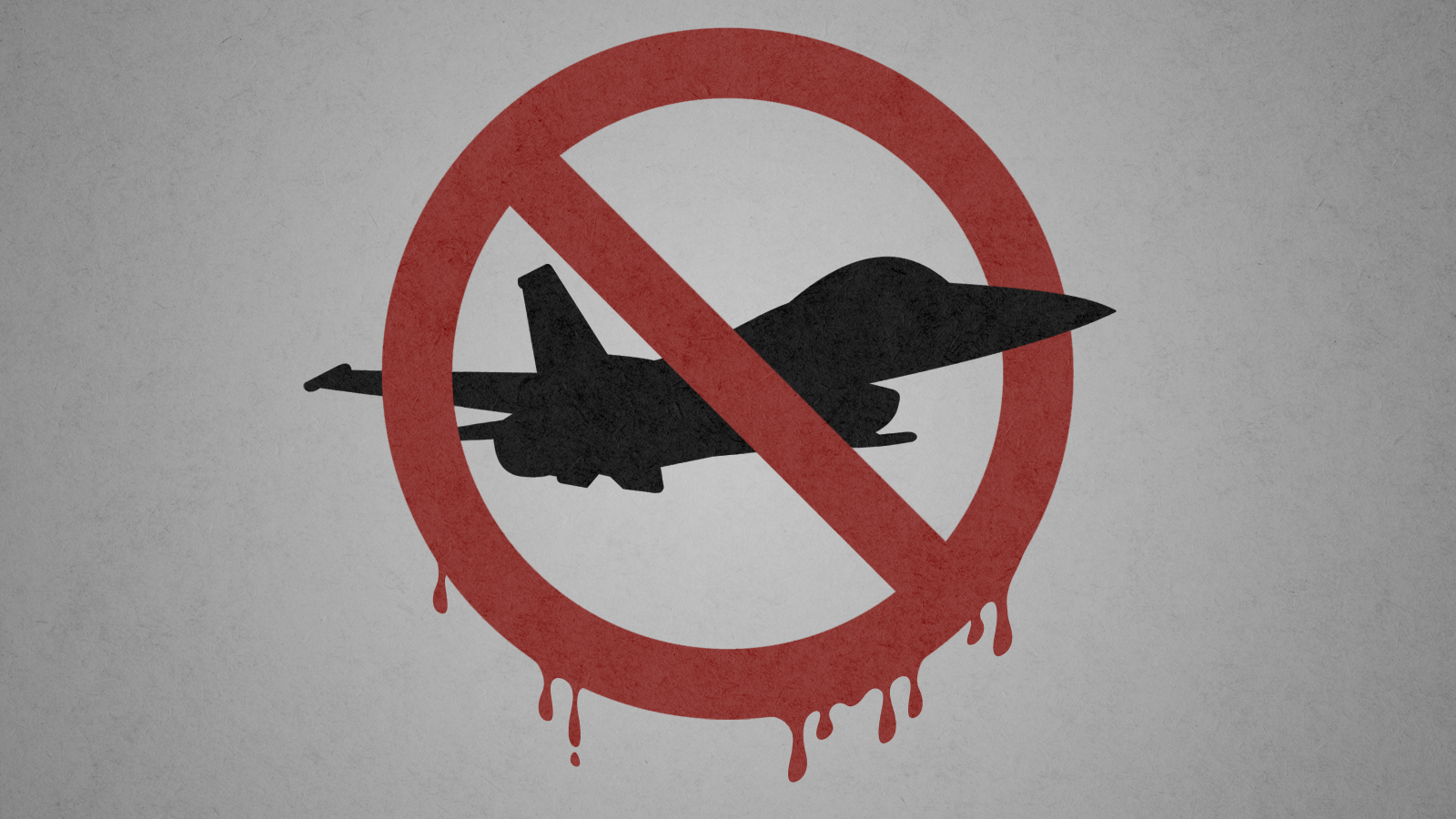A no-fly zone is a bad idea that just won't go away


A free daily email with the biggest news stories of the day – and the best features from TheWeek.com
You are now subscribed
Your newsletter sign-up was successful
The U.S. shouldn't try to establish a "no-fly zone" over Ukraine. It's a terrible idea that would draw us directly into war with Russia, which is something nobody should want to happen.
For some reason, though, the idea just won't go away.
Politico reported Tuesday morning that 27 "foreign policy heavyweights" have written a new letter calling for a different kind of no-fly zone in Ukraine — one oriented more toward humanitarian concerns and not so much toward repelling Russia's invasion forces. "It is time for the United States and NATO to step up their help for Ukrainians before more innocent civilians fall victim to Putin's murderous madness," the group wrote.
The Week
Escape your echo chamber. Get the facts behind the news, plus analysis from multiple perspectives.

Sign up for The Week's Free Newsletters
From our morning news briefing to a weekly Good News Newsletter, get the best of The Week delivered directly to your inbox.
From our morning news briefing to a weekly Good News Newsletter, get the best of The Week delivered directly to your inbox.
That sounds almost reasonable and right, until you realize — as Politico notes — that even that limited intervention would still probably end in a clash between U.S. and Russian forces.
Similarly, Fox News' Jacqui Heinrich reported on Monday that "some members of Congress are beginning to advocate for a non-kinetic no-fly zone — something to the effect of using electromagnetic pulse, sonar, and cyber to keep Russian jets on the ground so they can never take off." That's probably silly, idle fantasizing — sonar? — but it suggests a few hawkish members of the U.S. government are still itching to get America more deeply, if indirectly, embedded in the fight.
What both ideas share with each other (and with former President Trump's suggestion of attacking Russian forces using U.S. planes painted with Chinese flags) is an apparent desire to repel the invasion without quite taking responsibility for that act. To be fair, that's already something that's happening: Ukrainians are using American-provided anti-tank missiles to wreak havoc on the invaders. Getting directly involved with the use of American pilots and troops, though, is something different. Giving a humanitarian gloss to U.S. war-making wouldn't suddenly make it not war-making; neither would using "non-kinetic" means to ground the Russian air force. Vladimir Putin would regard that as an act of war, as would Americans if the Russians used such means against us.
At some level, the people making the proposals recognize this. One of the letter signers, former NATO commander Philip Breedlove, acknowledged last week to NPR that a no-fly zone is a "big step": "A no-fly zone, if it is truly a military no-fly zone, is essentially an act of war because that means you are willing to enforce it, meaning those who violate it you would shoot at." He wants to do it anyway.
A free daily email with the biggest news stories of the day – and the best features from TheWeek.com
It's awful to feel powerless in the face of the gut-wrenching scenes coming out of Ukraine. But provoking a clash between Americans and Russians unacceptably raises the odds of a much greater catastrophe. Establishing a no-fly zone is still a bad idea, no matter what cute twist is used to try to make it otherwise.
Joel Mathis is a writer with 30 years of newspaper and online journalism experience. His work also regularly appears in National Geographic and The Kansas City Star. His awards include best online commentary at the Online News Association and (twice) at the City and Regional Magazine Association.
-
 Corruption: The spy sheikh and the president
Corruption: The spy sheikh and the presidentFeature Trump is at the center of another scandal
-
 Putin’s shadow war
Putin’s shadow warFeature The Kremlin is waging a campaign of sabotage and subversion against Ukraine’s allies in the West
-
 Media: Why did Bezos gut ‘The Washington Post’?
Media: Why did Bezos gut ‘The Washington Post’?Feature Possibilities include to curry favor with Trump or to try to end financial losses
-
 The mission to demine Ukraine
The mission to demine UkraineThe Explainer An estimated quarter of the nation – an area the size of England – is contaminated with landmines and unexploded shells from the war
-
 The secret lives of Russian saboteurs
The secret lives of Russian saboteursUnder The Radar Moscow is recruiting criminal agents to sow chaos and fear among its enemies
-
 Is the 'coalition of the willing' going to work?
Is the 'coalition of the willing' going to work?Today's Big Question PM's proposal for UK/French-led peacekeeping force in Ukraine provokes 'hostility' in Moscow and 'derision' in Washington
-
 Ukraine: where do Trump's loyalties really lie?
Ukraine: where do Trump's loyalties really lie?Today's Big Question 'Extraordinary pivot' by US president – driven by personal, ideological and strategic factors – has 'upended decades of hawkish foreign policy toward Russia'
-
 What will Trump-Putin Ukraine peace deal look like?
What will Trump-Putin Ukraine peace deal look like?Today's Big Question US president 'blindsides' European and UK leaders, indicating Ukraine must concede seized territory and forget about Nato membership
-
 Ukraine's disappearing army
Ukraine's disappearing armyUnder the Radar Every day unwilling conscripts and disillusioned veterans are fleeing the front
-
 Cuba's mercenaries fighting against Ukraine
Cuba's mercenaries fighting against UkraineThe Explainer Young men lured by high salaries and Russian citizenship to enlist for a year are now trapped on front lines of war indefinitely
-
 Ukraine-Russia: are both sides readying for nuclear war?
Ukraine-Russia: are both sides readying for nuclear war?Today's Big Question Putin changes doctrine to lower threshold for atomic weapons after Ukraine strikes with Western missiles
